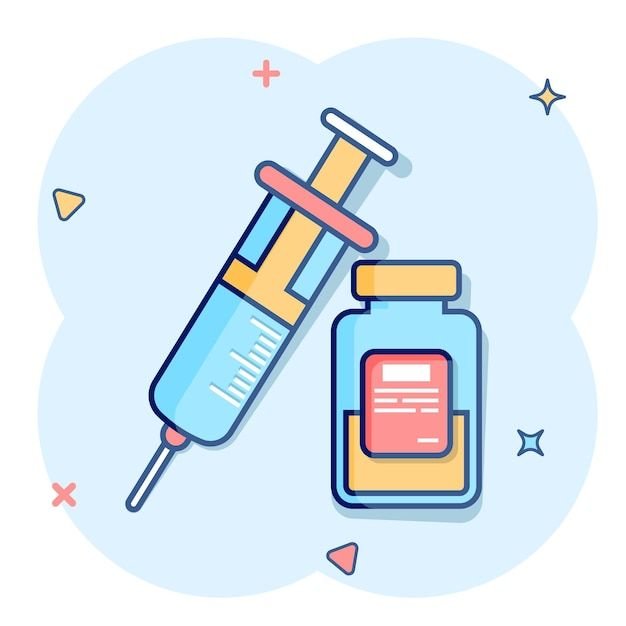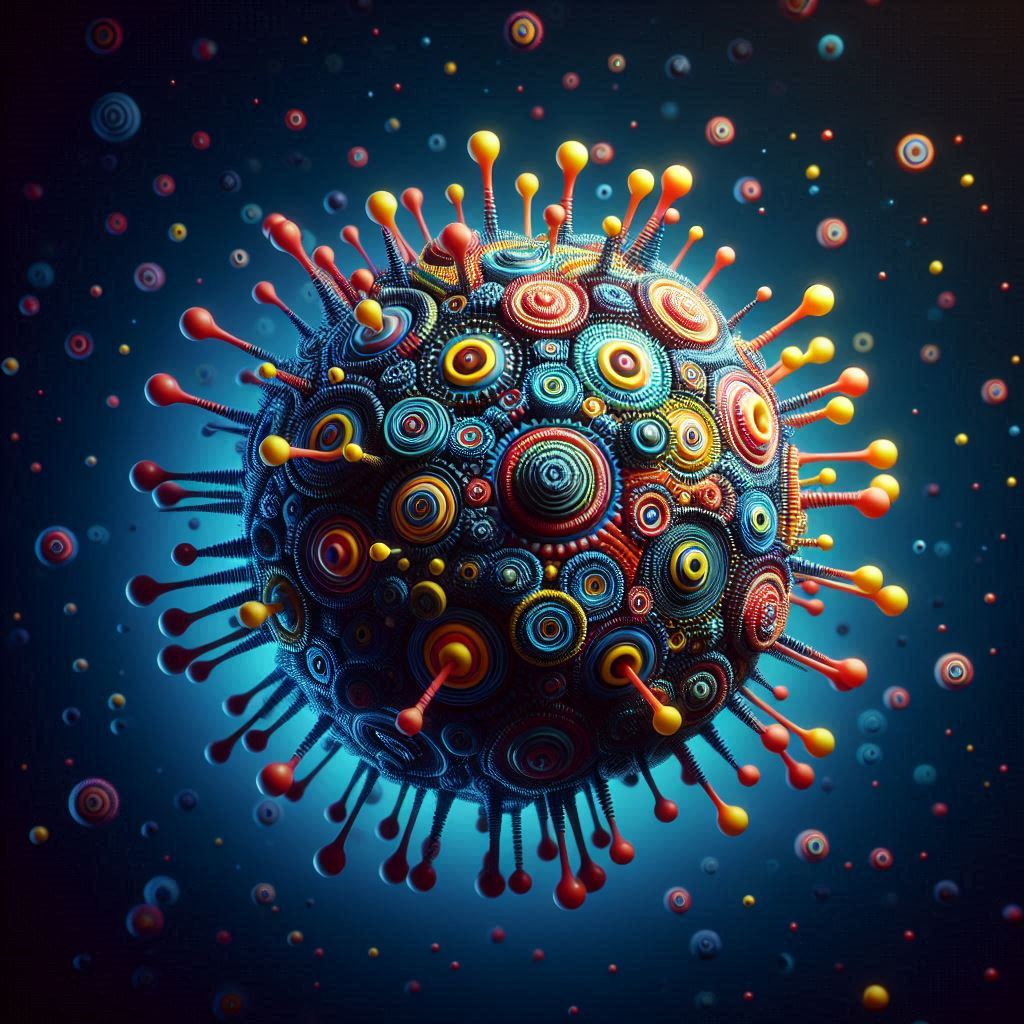What is HPV vaccine?

The scientific name for Human Papillomavirus is HPV. These are a family of viruses that affect the mucous membranes and skin of humans. The most common sexually transmitted infection (STI) in the world is HPV.
The HPV vaccine is a vaccine that helps protect against certain types of the Human Papillomavirus (HPV), which can cause genital warts and various cancers, including cervical cancer.
HPV comes in a variety of forms; some can result in genital warts, while others can cause cervical, anal, penile, vaginal, and oropharyngeal (throat) cancers, among other malignancies.
Causes
Human papillomavirus, or HPV, is mainly spread by skin-to-skin contact, usually during sexual activity. It is spread through:

- Sexual Contact: HPV is most commonly transmitted through vaginal, anal, or oral sex with someone who is infected.
- Direct Skin-to-Skin Contact: Even without penetrative sex, HPV can be transmitted through direct skin-to-skin contact in the genital area.
- Vertical Transmission: HPV can be passed from a mother to her baby during childbirth, although this is rare.
Symptoms
The majority of people infected with HPV do not experience any symptoms, and the infection often resolves on its own without causing any health problems. However, they can vary depending on the type of HPV:
1. Genital Warts: Some types of HPV can cause genital warts, which are growths or bumps that appear in the genital area. These can be raised or flat, small or large, and may appear singly or in clusters. They can be flesh-colored, pink, or gray. Genital warts can appear weeks to months after exposure to the virus, but not everyone with HPV will develop genital warts.

2. Cancer: Certain types of HPV are considered high-risk because they can cause changes in cells that may lead to cancer over time. These cancers include cervical, anal, penile, vaginal, and oropharyngeal (throat) cancers. Symptoms of HPV-related cancers can vary depending on the type and location of the cancer, and may include abnormal bleeding, pain, or changes in bowel or urinary habits.
3. Respiratory Papillomatosis: In rare cases, HPV can cause recurrent respiratory papillomatosis (RRP), where warts grow in the throat or airways. This can lead to voice changes, difficulty breathing, or other respiratory symptoms.

HPV vaccine name, cost and use-
HPV vaccine name- Gardasil 9 Cost- 2000 to 4000 approximately for per dose. Use- for HPV associated cancer and cervical cancer.
Advantages of HPV vaccine
Prevention of HPV Infections: The primary benefit of the vaccine is its ability to prevent infection with several types of HPV that are most commonly associated with genital warts and various cancers.
Reduction in HPV-related Diseases: By preventing HPV infections, the vaccine reduces the incidence of HPV-related diseases such as genital warts and certain types of cancers. This not only improves individual health outcomes but also reduces the burden on healthcare systems.
High Efficacy: The vaccines (such as Gardasil 9) have been shown to be highly effective in preventing infection with the HPV types included in the vaccine. For instance, Gardasil 9 protects against nine types of HPV, which collectively cause the majority of HPV-related cancers and genital warts.

Long-lasting Protection: Studies have indicated that the vaccine provides long-lasting protection. Research continues to monitor the duration of protection provided by the vaccine, but current evidence suggests that it offers protection for at least 10 years or more.
Herd Immunity: By vaccinating a significant proportion of the population (especially adolescents before they become sexually active), herd immunity can be achieved. This indirectly protects those who are not vaccinated, including individuals who cannot be vaccinated for medical reasons.
Safe and Well-Tolerated: The vaccines have been extensively studied and are considered safe. Common side effects are usually mild, such as pain or swelling at the injection site, and serious side effects are extremely rare.
Cost-effectiveness: Vaccination against HPV has been shown to be cost-effective in various studies, considering the potential reduction in healthcare costs associated with treating HPV-related diseases and cancers.
Public Health Impact: The widespread implementation of HPV vaccination programs has the potential to significantly reduce the overall burden of HPV-related diseases and cancers globally.
Disadvantages of HPV vaccine
While the HPV (Human Papillomavirus) vaccine offers numerous benefits, there are some potential disadvantages or considerations associated with its use:

- Side Effects: The vaccine can cause side effects. Most side effects are mild and temporary, such as pain or swelling at the injection site, fever, headache, or fatigue. Serious side effects are rare but can include severe allergic reactions (anaphylaxis). It’s important for healthcare providers to monitor for and manage any adverse reactions appropriately.
- Perceptions and Misinformation: There have been concerns and misinformation spread about the vaccine, leading to hesitancy among some individuals or parents regarding its safety and necessity. Addressing these concerns with accurate information is crucial to ensure informed decision-making.
- Cost: In some regions or healthcare systems, the cost of the vaccine may be a barrier for individuals who do not have health insurance coverage or access to subsidized vaccination programs.
- Vaccine Administration Challenges: The vaccine requires multiple doses for full effectiveness (typically two or three doses depending on age at initial vaccination), which can pose challenges for adherence and completion of the vaccination series.
- Limited Protection Against All HPV Types: While the current HPV vaccines (e.g., Gardasil 9) protect against the most common HPV types that cause cancers and genital warts, they do not protect against all HPV types. Therefore, continued cervical cancer screening (e.g., Pap tests) is recommended for vaccinated individuals.

FAQ (frequently asked questions)
1. What is the HPV vaccine?
- The HPV vaccine is a vaccine that helps protect against certain types of the Human Papillomavirus (HPV), which can cause genital warts and various cancers, including cervical cancer.
2. Who should get the HPV vaccine?
- HPV vaccine is used for both males and females. It is typically recommended for adolescents starting at ages 11-12, but can be given as early as age 9 and up to age 26 for those who have not previously been vaccinated.
3. What types of HPV does the vaccine protect against?
- The most commonly used HPV vaccines protect against HPV types that cause the majority of cervical cancers and genital warts. For example, Gardasil 9 protects against nine types of HPV (types 6, 11, 16, 18, 31, 33, 45, 52, and 58).
4. How is the HPV vaccine given?
- The HPV vaccine is given as a series of injections (shots) in the upper arm or thigh. The number of doses needed depends on age at the time of the first dose and the specific vaccine used (usually 2 doses for those vaccinated before age 15, and 3 doses for those vaccinated at age 15 or older).
5. Is the HPV vaccine safe?
- Yes, the HPV vaccine is considered safe. It has been extensively studied in clinical trials and real-world use. Common side effects are usually mild, such as pain or swelling at the injection site, and serious side effects are very rare.
6. What are the benefits of getting vaccinated against HPV?
- The HPV vaccine helps prevent HPV infections, which can lead to genital warts and various cancers (cervical, anal, penile, vaginal, and oropharyngeal cancers). It also contributes to herd immunity, protecting unvaccinated individuals.
7. Does the HPV vaccine protect against all types of HPV?
- No, the HPV vaccine protects against specific types of HPV that are most commonly associated with cancers and genital warts. .
8. When should someone get vaccinated against HPV?
- The HPV vaccine is most effective when given before exposure to HPV through sexual activity. It is recommended for adolescents around ages 11-12, but can be given as early as age 9 and up to age 26 for those who have not previously been vaccinated.
9. Are there any reasons why someone should not get the HPV vaccine?
- People with severe allergies to any component of the HPV vaccine or those who have had a severe allergic reaction after a previous dose of the HPV vaccine should not get vaccinated.
10. How long does protection from the HPV vaccine last?
- Studies suggest that the HPV vaccine provides long-lasting protection. Current evidence indicates protection for at least 10 years, and ongoing studies are monitoring the duration of protection.
11. Where can I get the HPV vaccine?
- The HPV vaccine is available through healthcare providers, clinics, and public health departments. It may also be available through school-based vaccination programs or community health centers.
12. Is the HPV vaccine covered by insurance?
- In many countries, including the United States, the HPV vaccine is covered by health insurance for eligible individuals. It’s advisable to check with your insurance provider to confirm coverage.
13. Can the HPV vaccine be given during pregnancy?
- The HPV vaccine is not recommended during pregnancy, but if a woman becomes pregnant during the vaccination series, it is usually recommended to complete the series after pregnancy. However, individual circumstances should be discussed with a healthcare provider.
14. Can the HPV vaccine cause infertility?
- No, there is no evidence to suggest that the HPV vaccine causes infertility. The vaccine is designed to prevent HPV infections and associated health problems, not to affect fertility.
15. Is the HPV vaccine mandatory?
- Policies regarding HPV vaccine mandates vary by country and region. In some places, the HPV vaccine is recommended but not mandatory. It’s important to check local guidelines and regulations.
16. What should I do if I missed a dose of the HPV vaccine?
- If you missed a dose of the HPV vaccine, talk to your healthcare provider about catching up. Depending on the vaccine used and your age, you may still be eligible to complete the series.
Conclusion
HPV is a widespread virus with significant implications for public health. Through education, vaccination, and regular screenings, we can reduce the prevalence of HPV-related cancers and other conditions. By understanding the facts and dispelling myths, we empower individuals to make informed decisions about their sexual health. Together, we can work towards a future where HPV is no longer a silent epidemic but a preventable health concern.
Table of Contents
Read more about HPV
Go and visit dusearchit.in and get more knowledge about others topics.
